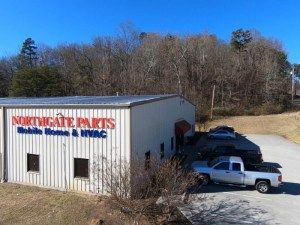Top Tips for Installing Mobile Home Skirting Like a Pro
Installing skirting around your mobile home is a vital aspect of mobile home exterior improvements.
Not only does skirting enhance the visual appeal of your home, but it also provides essential insulation, protects the underbelly from pests and debris, and helps regulate temperature. Whether you're a DIY enthusiast or hiring a professional, understanding the proper techniques for skirting installation can make a significant difference. In this guide, we will walk you through top tips for installing mobile home skirting like a pro, using quality materials from North Gate Parts to ensure a flawless finish.
Why Mobile Home Skirting Matters
Before diving into the installation tips, it's important to understand why skirting is essential:
- Insulation: Skirting helps maintain a consistent indoor temperature by insulating the area beneath your mobile home. This can reduce heating and cooling costs significantly.
- Protection: Proper skirting shields the underbelly of your mobile home from moisture, pests, and debris, preventing potential damage and extending the lifespan of your home.
- Aesthetics: Skirting improves the overall appearance of your mobile home, giving it a more polished and finished look.
Top Tips for Installing Mobile Home Skirting
- Prepare the Area - Before you begin installation, it's essential to prepare the area. Clear the space around the bottom of your mobile home by removing debris, rocks, and vegetation. This ensures a clean and level surface for skirting installation.
- Measure Accurately - Accurate measurements are crucial for a proper fit. Measure the length of each side of your mobile home, taking into account any irregularities in the ground level. This will help you cut the skirting material to the correct size. Use a measuring tape and level to ensure precise measurements.
- Choose the Right Tools and Materials - Gather all necessary tools and materials before starting the installation. Depending on the skirting material you choose, you may need tools such as a saw (for cutting), a drill, screws or nails, and a level. If you're using vinyl or metal skirting, ensure you have the appropriate fasteners and anchors.
- Follow Manufacturer Instructions - Each skirting material comes with specific installation instructions provided by the manufacturer. Follow these guidelines carefully to ensure a proper and secure installation. Manufacturer instructions often include recommendations for cutting, fastening, and sealing the skirting. Keep the manufacturer’s guidelines handy throughout the installation process.
- Install a Base Track or Foundation - For materials like vinyl or metal, installing a base track or foundation is crucial. This track provides a stable base for the skirting and helps secure it in place. Ensure the track is level and anchored securely to the ground. For concrete skirting, ensure the foundation is properly prepared and level before pouring the concrete.
- Attach the Skirting Panels - Once the base track is in place, begin attaching the skirting panels. Start at one corner and work your way around the mobile home. Ensure each panel fits snugly and aligns with the adjacent panels. For vinyl skirting, use a snap-lock system to secure the panels in place. For metal or wood skirting, use screws or nails as recommended.
- Seal Gaps and Joints - After installing the skirting panels, check for any gaps or joints that need sealing. Proper sealing prevents pests and moisture from entering and ensures a finished look. Use caulk or sealant suitable for the skirting material to fill any gaps or seams.
- Check for Stability - Once the skirting is installed, check for stability and make sure there are no loose panels or shifting. Adjust fasteners or anchors as needed to secure the skirting firmly in place. Periodically inspect the skirting after installation to ensure it remains stable and in good condition.
- Maintain Your Skirting - Regular maintenance is key to prolonging the lifespan of your skirting. Clean the skirting periodically and address any damage or wear promptly. For vinyl and metal skirting, use mild detergent and water for cleaning. For wood skirting, inspect for rot and repaint or stain as needed.
- Professional Assistance - If you’re unsure about the installation process or if you encounter challenges, consider seeking professional assistance. A professional installer can ensure a proper and efficient installation, giving you peace of mind. North Gate Parts can provide expert advice and high-quality skirting materials to help you with your project.
Why Choose North Gate Parts for Your Skirting Needs?
North Gate Parts is your go-to source for high-quality mobile home parts, including skirting materials. With over 30 years of experience serving customers in Chattanooga and Knoxville, we offer a wide range of skirting options to suit your needs. Our knowledgeable team can help you select the best skirting material and provide guidance on installation.
Installing mobile home skirting is a significant step in improving the appearance, insulation, and protection of your mobile home.
By following these expert tips and choosing high-quality materials from North Gate Parts, you can achieve a professional and durable skirting installation. Whether you're a DIY enthusiast or seeking professional help, proper planning and execution will ensure a successful outcome. Don’t hesitate to reach out for assistance and take advantage of our extensive experience and product selection. Enhance your mobile home today and enjoy the benefits of a well-installed skirting system!
Ready to enhance your mobile home’s exterior with professional-grade skirting?
Visit North Gate Parts to explore our selection of top-quality skirting materials and get expert advice for your installation project. For personalized assistance and to learn more about our products, call us at (423) 870-1515. Our team is here to support you every step of the way!
Other Articles from Northgate Parts




